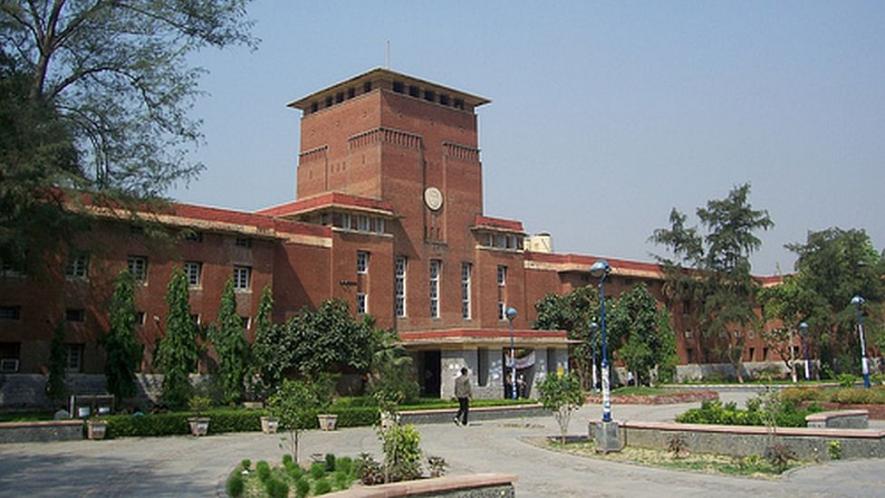Decision to Scrap MPhil Courses is Bad for Quality Research in Delhi University, Say Teachers

Representational Image. Image Courtesy: Commons
A day after Delhi University (DU) issued notification regarding the discontinuation of MPhil in existing courses, teachers of the prestigious university expressed concerns over the dilution of quality in research at different levels. Adhering to the proposals of New Education Policy (NEP), the university, in its notification through Chairperson Research Council, said, ”In light of EC Resolution no. 8 [8-1(8-1-1) dated August 31, 2021, the existing MPhil programme run in various departments of University of Delhi will be discontinued from the academic year 2022-23 in line with NEP 2020.”
The Academic Council of the university, in its meeting in August last year, had given the nod even though the members vehemently opposed it. A similar protest was observed in the meeting of the Executive Council, where 16 members dissented with the induction of NEP hurriedly. The university teachers maintain that the MPhil courses prepared students to do research in a better way, and the current format may result in compromised research.
Abha Dev Habib, Associate Professor at Miranda House, said MPhil would be discontinued as per NEP, and as opposed to PhD, MPhil is a short-term research degree for students which provided them exposure to research work and added to their CVs.
”Social scientists believe that students with MPhil did better in their PhDs. This degree is being discontinued not because of any organic need of the system but because of NEP 2020. It is all about widening the gap between the haves and have nots. Either commit to doing a PhD or remain without a research degree. NEP, which is floating on advertisement of "choice", is taking away students' real choices. Students with disadvantageous backgrounds, especially women, looked up to MPhil as a research degree they could afford before going towards teaching jobs.”
Talking to NewsClick over the phone, she said that the teachers are observing that dalit and women candidates opted more for the MPhil course because it gave them an easy route to the job market.
”Women candidates opted for these courses because dedicating four years to research was always difficult in rural families or families where financial and mental support was very weak. They usually did their PhD course along with their jobs. This option is not available now.”
NEP advised higher education institutions to develop two-year masters courses with a second-year dedicated to research or a four-year bachelor programme with a fourth-year degree in research. The policy document states that the institutions “will have the flexibility to offer different designs of Masters programmes, (a) there may be a two-year programme with the second year devoted entirely to research for those who have completed the three-year Bachelor's programme; (b) for students completing a four- year Bachelor's programme with Research there could be a one-year Master's programme and (c) there may be an integrated five-year Bachelor’s/Masters programme. Undertaking a PhD shall require either a Master’s degree or a 4-year Bachelor’s degree with Research. The MPhil programme shall be discontinued.”
Mithuraaj Dhusiya, Academic Council member, DI, said that the MPhil course, over several generations, has played an important role in DU and other Indian universities in developing research aptitude through robust course work and introduction to higher research.
“MPhil research degree has been a degree by itself, separate from and at the same time above Master's degree. It is extremely unfortunate that the NEP 2020 discontinues MPhil.”
Concerns have also come from educationists who maintained that the MPhil course still served utility in social sciences. Eminent Sociologist Satish Deshpande who teaches at the Department of Sociology, DU, told NewsClick that MPhil prepared the students mentally to pursue higher research.
”MPhil worked as a primer for people who were new to research. Sometimes students wish to pursue research, but they may not dedicate time and energy. It apprised them about what’s coming in PhD because it is an intense discipline of work. However, I am more apprehensive about the future of Master's courses. The policy document may suggest something but how it is being implemented is crucial !”
Get the latest reports & analysis with people's perspective on Protests, movements & deep analytical videos, discussions of the current affairs in your Telegram app. Subscribe to NewsClick's Telegram channel & get Real-Time updates on stories, as they get published on our website.
























